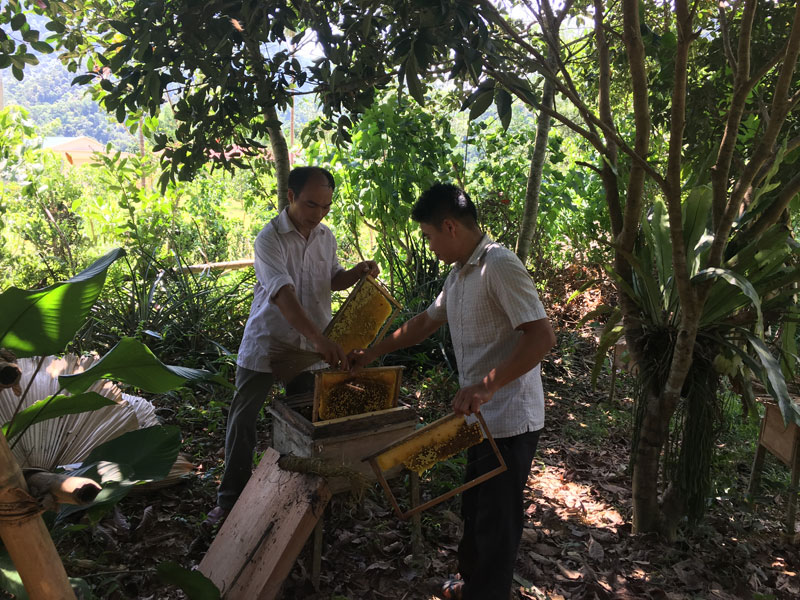



Bui Van Nhuan of Tren hamlet, Tu Do commune (Lac Son district)
collects honey from forest bees.
Bui Van Nhuan of Tren
hamlet, who collects honey from bees raised in the forests, said that his
family currently keeps four beehives. The bees return to their hives to make
honey and every day, they come to the forests to search for food and suck
pollen from dawn till dusk.
Before, Nhuan’s family
only kept one hive, but with the support of a poverty alleviation programme,
the number went up to four. He collects about
Families of local
beekeeper still follow traditional method to collect honey. Accordingly, the
wax, which is full of honey, will be squeezed manually.
Local beekeepers revealed
that to collect pure honey, they have to prepare all equipment for honey
collecting, along with funnel, honey vibrating filter machine, bee brush,
knife, bee smoke sprayer and gloves, among others. All equipment must be clean
before the process.
Each honey crop is one
month apart and time for honey collecting lasts about half a year, usually from
April to September, when the weather is warm and flowers blossom all over the
forest.
It is also the time that
local beekeeping families are ready for their annual honey collecting. Every
household patiently waits until the frame hives are fully coated with bee wax,
they would start to take those frames out and collect honey.
Bui Van Tue, head of the
beekeepers in Tren hamlet said local beekeepers have to be patient in order to
obtain fully ripe and high-grade honey. According to statistics, the commune is
home to more than 70 beekeeping households in Sat Thuong, Trên, Tren, Khay, Mu
and Mon hamlets, which scatter in those localities.
Only Tren hamlet has the
most concentrated beekeeping area with participation of 37 families and over
200 bee colonies. It is also the first hamlet that has formed a beekeeping
group which has gone under fundamental technical training with support of each
group member.
Bui Ngoc Thien, Chairman
of the People’s Committee of the hamlet said local people have tapped the
potential of the rich natural forest in the Ngoc Son – Ngo Luong Natural
Reserve to keep forest bee for honey, greatly increasing local income and
improving living standards./.